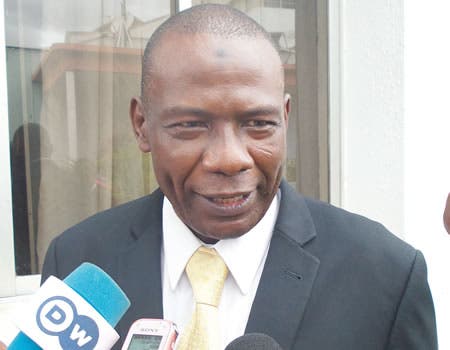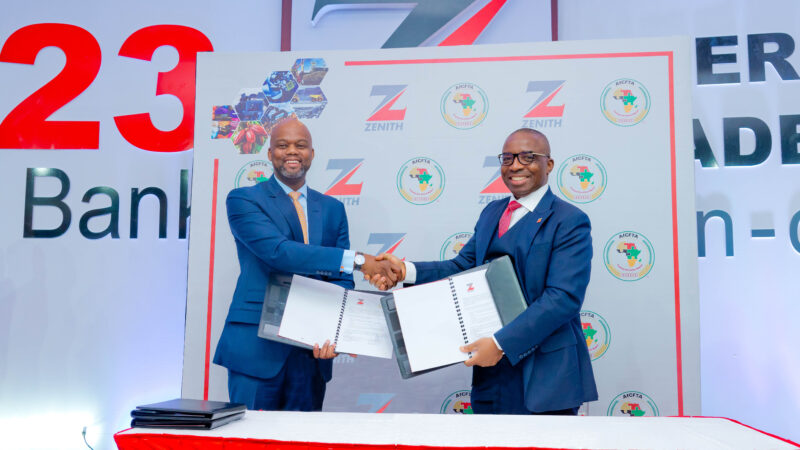ABCON, NACCIMA, MAN Highlight Strategises To Revive Nigeria’s Real Sector At CICAN Workshop


By UDO ONYEKA
The President, Association of Bureaux De Change Operators of Nigeria (ABCON), Alhaji Aminu Gwadabe, has highlighted steps to achieve a virile real sector growth in Nigeria.
Indeed, the association stated that the Nigerian business environment is becoming more hostile, maintaining that the horrible business climate is being compounded by the unstable foreign exchange regime coupled with the Covid-19 pandemic.
Gwadabe disclosed this in Lagos at the 2020 Commerce And Industry Correspondents Association of Nigeria (CICAN) End Of Year Workshop, themed; “Effects of COVID-19 on the Real Sector / SMEs Financing”.
According to him, one of the greatest challenge hindering the sector is the border closure and multiple taxation.
He advised that for Nigeria to come out of recession, the government must remove all multiple taxes levied on manufacturers, saying that the economic managers should always encourage manufacturers by way of formulating investment friendly policies.
“The government should grant tax holiday to manufacturers during this period of general economic hardship if we must come of recession. They should think of incentives to manufacturers and not exploiting or punishing them with levies and taxes. The government should make low single digit loans available with less bureaucracy if the country must experience growth,” he advocated.
Further he said lifting tax burden of the manufacturers will help in creating more employment, thereby lifting jobless youths out of the street, calling on the government to develop policies that would encourage competitiveness of the Nigerian manufacturers.
In his words, “Government should think of tangible grants to the manufacturers as well as non interest loans to attract more visitors into the manufacturing sector. The government should warn its agencies to desist from seeing manufacturers as avenues to make money for themselves.”
He added that manufacturers are not making profit due to massive infrastructural deficit that has plagued the nation over the years.
“We generate power by ourselves and the cost is unbearable. What about road rehabilitation, majority lost our manufactured goods and raw materials to bad roads, our vehicles and vans breakdown on the daily bases as a result of the poor condition of our roads,” he added.
Also speaking at the event acting Director-General of MAN, Ambrose Oruche, said the policies formulated to drive manufacturing in the country are not supportive, expressing his doubt if the sector would be out of doldrums by 1st quarter of 2021.
He said the environment must be created for manufacturing to thrive while also calling on Nigerians to have a penchant for locally made goods.
He pointed out that having penchant for foreign goods would make locally made goods struggle as soon as the African Continental Free Trade Agreement (AFCFTA) kicks off next year.
“The Organised Private Sector is ready to take advantage of the trade deal, but we currently do not have the facilities to be competitive. Nigeria should be able to take advantage of this opportunity being the top manufacturing country in Africa, but deficiency in infrastructure is a great bottleneck,” he said.
The Director General, Nigerian Association of Chambers of Commerce, Industry, Mines and Agriculture (NACCIMA), Ambassador. Ayoola Olukanni, said according to the Nigeria Bureau of Statistics (NBS), the growth rate of National Output stood at negative 3.62 per cent as at the third quarter of 2020, stating that the inflation rate stood at 14.23 per cent as at October 2020.
He said the unemployment report of the 2nd Quarter, 2020, showed that 21.8million Nigerians were unemployed, out of a labour force of 80.2 million Nigerians.
“To compound these socioeconomic issues, the COVID-19 pandemic that has swept around the globe for a greater part of this year has brought with it a health, as well as, an economic crisis. As an economy, we are yet again facing the consequences of over-dependence on crude oil revenues. This is a reminder that we must really work hard to diversify our economy. We face dwindling foreign exchange reserves, increasing domestic and foreign debt, and difficulties in doing business brought about largely by an infrastructure deficit in the power and transportation sectors,” he averred.
He said policies must be implemented to improve ease of doing business and reducing the cost of doing business, especially for SMEs which makes about 48 per cent to the national GDP and provides about 84 per cent employment according to various studies. “Implicitly, our SMEs which are the private sector operators are the bedrock of our economy and we must do all we can to support them, not just to survive but flourish as we consider strategic options out of recession hopefully by first quarter of 2021,” he stressed.
He added that opportunities are also now opening up as the nation gets ready for the operationalisation of the African Continental Free Trade Area AfCFTA in January 2021.
“We must also reposition the Nigerian economy especially the manufacturing sector by improving infrastructure such as power, roads, rail and ensure efficient functioning of our Ports. This is to enable us compete effectively and successfully under the AfCFTA. We must encourage Private Sector operators to key into the AfCFTA essentially because they will be the key players under the agreement,” he said.
In his presentation, Mr. Mallinson Afam Ukatu, Chairman, Non-Metalic Mining, Manufacturers Association of Nigeria (MAN), regretted that the Nigerian business environment is becoming more hostile and unbearable.
Ukatu pointed out that the horrible business environment is being compounded by the escalating exchange rates, and forex scarcity coupled with the Covid-19 pandemic.
“One of the most killing is the issue of border closure, which is yet to be appropriately addressed as well as the elimination of payment of multiple taxes which we have been clamouring for. For us to come out of recession as a country, the government must remove all multiple taxes levied on manufacturers, and all the ministries that are visiting factories with all forms of charges should be cautioned. The government should encourage manufacturers way of formulating policies that is investment friendly. The government should grant tax holiday to manufacturers during this period of general economic hardship if we must come of recession. They should think of incentives to manufacturers and not exploiting or punishing them with levies and taxes. The government should make low single digit loans available with less bureaucracy if the country must experience growth.Lifting tax burden of the manufacturers will help in creating more employment, thereby lifting jobless youths out of the street,” he stressed.







